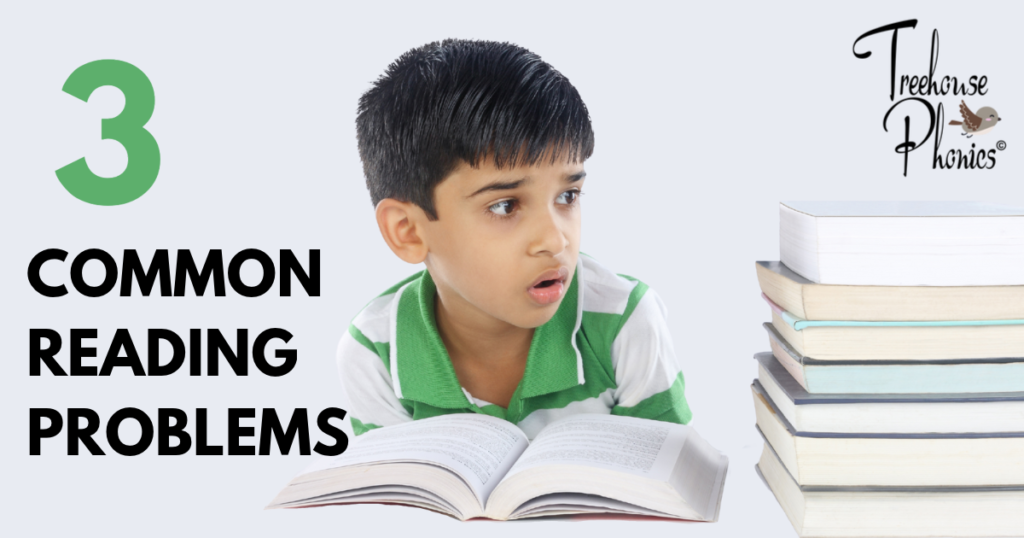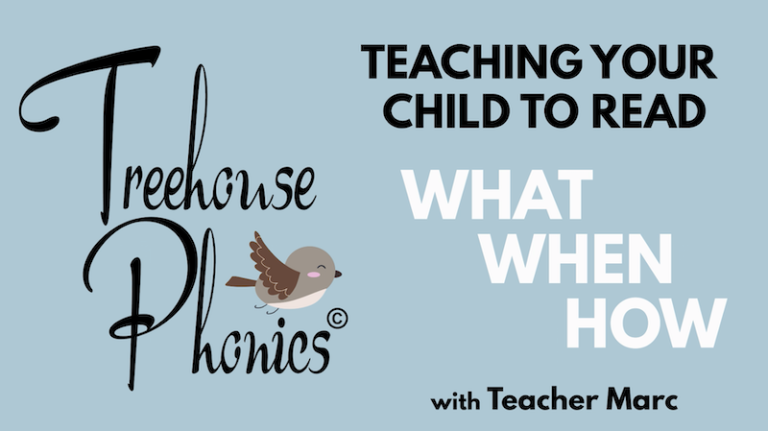If your child has fallen behind or finds reading to be a serious challenge, this can adversely affect their academic performance, crush their self-esteem or rob them of opportunities in life that generally come easier to fluent readers who understand and retain what they read. Identifying the root cause is our first priority.
Before we begin, I wanted to direct your attention back to the title of this article. First off, we can draw a measure of comfort knowing that IF your child is experiencing any of the 3 problems we are discussing today, they are in fact “common” problems and this means the following:
1) You’re not alone.
2) Your child is not alone.
3) There is a good chance that your child is not a lazy underachiever. (It’s one thing to think it. It’s another thing to hear it coming from others.)
4) When a problem is commonplace, there is gathering interest from experts in various fields of study who are keenly motivated to find a solution.
Our human inclination is to focus on what is out of place. A tiny mustard stain on a beautiful wedding gown, a crooked picture on a wall, food in someone’s teeth, or even the slightest sour note heard from an orchestral grand piano. Something isn’t right or in its proper place. For some of us, it’s hard to just let it go and move on. When it comes to our children and reading, early detection of what appears to be “out of place”, can make all the difference in the world!
It isn’t long before others, including yourself, will notice that your child is not reading with the fluency and confidence of other children their age. We may be quick to assume that they are simply not interested in reading or learning to read. Books are just “not their thing”. We might even blame ourselves, thinking that our lessons fall short on quality and delivery. The reality could be that your child is struggling due to an undiagnosed learning difficulty.
Most children are fluent speakers by ages 6 and 7. We are amazed at the level of vocabulary they’ve retained in such a short time. Learning to speak seems to come naturally. Hardwired so to speak. Reading, however, is an acquired skill set that needs to be explicitly taught. It is not a natural process.
Reading – What is Involved?
A child must first learn pre-literacy skills that would include letter recognition and phonemic awareness. Being aware that sounds are heard within words, helps them to move forward and map sounds to corresponding letters. This is achieved through structured phonics instruction that helps them decode sounds in words. Words they decode and read frequently are eventually stored and recalled instantly, on sight. Fluency and speed increase when they build up a greater collection of “sight words” and spend less time decoding each word in a sentence. We call this whole word recognition or sight-reading. Comprehension and understanding what they read come from accumulating vocabulary words and knowing how they are used in context.
Having a broad understanding of what is involved in reading gives us greater leverage to examine where along the line, the process might have broken down.
Common Problem #1 – Decoding

When a child comes across a word and cannot identify the sounds that each letter or combination of letters represents, that word becomes a mountain-like obstacle that can prove to be very discouraging. Sounding out words and decoding is laborious at first but with practice and even repeating the process out loud, the task becomes quicker and smoother. If, though, you see little progress and find your child getting more and more frustrated we need to investigate further.
Some people call tech support because their computers won’t turn on. The IT guy asks them if their computer is plugged in. No one ever likes the patronizing tone of that painfully simple suggestion. Yet, there is nothing more embarrassing than discovering that it was indeed unplugged. No matter how simple the solution might be, it’s sometimes the most obvious thing we failed to check in the first place.
Some parents agonize and lose sleep thinking that something is seriously wrong with their child because they struggle with the simple act of decoding words, only to find out that it was as simple as getting their eyes checked. Pair of glasses. Problem solved.
Never assume to worst. Let’s tick the simple boxes first that includes the possibility of visual or hearing impairment. Sometimes it’s even a matter of the lighting in the room or an obstruction in the ear canal. You would not believe the junk I shoved in my ears as a child! I guess we can equate this to checking the hardware first. Then, we can address HOW your child is processing new information and visit the possibility of Phonological Dyslexia or other learning challenges of this nature. As this is a more comprehensive subject on its own. I will address this in great detail and place a link within this article in the near future. In the meantime, I have found the following to be a fantastic source of information for any who suspect their child might have Dyslexia.
Common Problem #2 – Poor Comprehension

You can’t comprehend what you can’t recognize. You can’t comprehend what you can’t remember. You can’t comprehend what you don’t understand. The last one sounds a little redundant I know. Let’s tackle these one at a time.
Poor decoding skills can lead to poor comprehension. When a child encounters a word they can’t recognize, they are likely to skip over it. Skip over enough words in a sentence or paragraph and the meaning is lost. Pull enough bricks out of the walls and the house collapses. As adults, we may rely on context and let the surrounding text lend meaning to a 50-cent word but our children just want to move on and avoid embarrassment. They may look to the artwork or pictures for clues but this is not a habit we want to encourage.
What if decoding is not the issue?
Have you ever read an entire paragraph or even a whole page, only to stop and have to reread it again? We know we read the material but none of it sunk in. We performed the mechanics of reading but there seemed to be a momentary disconnect with our short-term memory. We might have been distracted by any number of things like fatigue, anxiety, worry, or disinterest. Is your child distracted while reading? Examine their surroundings and note what is happening around them as they read. Sometimes you might even stop them in the middle of reading and ask them what they are reading. If they fail to answer that question to your satisfaction, ask them what they are thinking. Their answer may surprise you and even bring a little relief, knowing that their comprehension issues could be remedied by simply turning down (or off) the TV in the next room or finding a room in the house with better lighting and more privacy.
Let’s say you read the word flawlessly. You can even remember the way it looks in your head and yet, you have no idea what it means. This is a vocabulary issue. A disconnect that hinders one from enjoying or even making sense of what the author intended to convey. When I speak to people, I can guarantee that I don’t sound like a Russel Brand interview. I simply don’t possess his level of vocabulary. He might use words like:
Quotidian /kwɒˈtɪdɪən/:something that is of daily occurrence
Example: The car sped noisily off through the quotidian traffic.
If I came across that word, I would either skip over it or look it up, depending on my level of commitment to the material. Children aren’t going to grab a thesaurus when they encounter words they don’t understand. Hopefully, they might ask you but sadly, they are most likely to skip it and move on. We can avoid this from happening by making sure they are reading age-appropriate material. Something specifically written for the vocabulary range of the average 5, 6, or 7-year-old and so on. You may wish to prescreen what they are reading, anticipate any unfamiliar words and teach the meaning of them prior to reading.
If poor comprehension persists, it would be a wise course of action to test whether your child may have specific attention span challenges and strategize with professionals to work in harmony with these limitations.
Common Problem #3 – Speed

Decoding words is an essential skill and must be mastered. A child can approach a word they have not read before and push aside intimidation to tackle the challenge head-on. Each time they do so, their self-confidence grows. While decoding is an integral part of the reading process, it is but one of many cogs in the machine. If decoding was the only tool used for reading, the process would remain slow and laborious. When a child decodes the same word over and over, the training wheels come off and the word is stored and retained for instant recall as a sight word. The more sight words they know, the faster they read. We can contribute to the efficiency of this process by helping them decode and retain as many of the most popular words used in modern English texts today. Such words have been carefully gathered and compiled into lists such as the Dolch and Fry list. It’s nice to know someone has already done the research for us.
Another obvious reason for a growing disinterest in reading is taking so long to get through a passage of text, that one forgets how it started, the plot, or even the names of some of the key characters. The flow, continuity, and rhythm are lost. This is part of the artistry that sets great authors apart from the rest. Losing out on that with any level of reading would certainly contribute to a lack of appreciation for books.
We’ve familiarized ourselves with the general process of reading and 3 common problems our children might be facing if they experience a lack of interest or feel frustrated when they read. Reading, as a core subject and skillset, is interwoven through the fabric of just about every academic endeavor. Reading is paramount to success. It is a relaxing source of entertainment that enriches the mind and frees us from the anxieties of everyday struggles. It is a gift and one we can help our child appreciate by keeping a keen and watchful eye for any or all of the 3 Common Reading Problems you’ve just read about.



